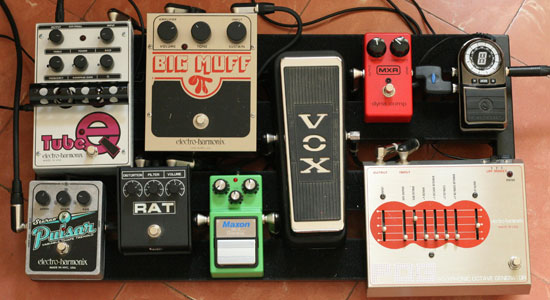 Even if he wanted to, Giant Sand’s Howe Gelb couldn’t repeat himself. Just watch him sing sometime; the guy’s got two vocal mics, one distorted, one clean, and he doesn’t make up his mind which one he’ll be singing into until he’s halfway through his line. Tucson (Fire), Gelb’s latest release (credited to Giant Giant Sand), is named after his Arizona hometown. He will also be guest editing magnetmagazine.com all week.
Even if he wanted to, Giant Sand’s Howe Gelb couldn’t repeat himself. Just watch him sing sometime; the guy’s got two vocal mics, one distorted, one clean, and he doesn’t make up his mind which one he’ll be singing into until he’s halfway through his line. Tucson (Fire), Gelb’s latest release (credited to Giant Giant Sand), is named after his Arizona hometown. He will also be guest editing magnetmagazine.com all week.

Gelb: When you are shocking a young listener with stories of a time when digital recording had not existed yet and analog was the order of the day, you can further confuse the young feller by mentioning that guitar players had no effects pedals either.
Once upon a time, there was a time when distortion was king. To get that incredible sound meant to tweak your amp and guitar accordingly. Maybe it was Roger Mayer who first capitalized on the preposterous notion that guitar players adored distorting their amplified sound; a notion that absolutely sounded insane to any worthy sound engineer at the time.
Why does distortion sound so good? It tends to express this existence more accurately then anything more accurate. Life is seldom state of the art on our first albums. I was constantly being saved by the studio engineers insisting on adorning our recordings with the state-of-the-art drum sound of the day’s trend. Being the mid-’80s, I was not to happy about it—in fact after several mixes of actually wrestling with the engineers to get their hands off the console, so that I could yank the volume of the drums down. I came in one day with an album by a band called Sonic Youth and was able to illustrate where I’d like the drums to sit in the mix inside of the guitar distortion. (Ironic note: During a recent reunion session with one said early engineer for an upcoming solo album, Steve Shelley from Sonic Youth was actually on board drumming.)
When I stumbled upon the nasty beauty of the fabled green distortion pedal of the mid-’80s, I tended to use it in lieu of an orchestra. When that sucker got stomped is when I’d imagine a giant orchestra kicking in and then just as instantaneously, they’d be gone when re-stomped.
Distortion is a glorious thing, it’s life distorts us. We distort life, too. When lo fi became a listenable thing in the late ’90s, we were then able to experience the quieter side of distortion, and it had just as much lovely impact. But then things went they way the always do: They got out of hand.
Not being merely satisfied with one or two such effect pedals, eventually everyone had a pedal board. A ton of audio colors and flavorful sounds at the tap of a foot, and then it didn’t really matter how wonderful vintage your guitar was or the fat warm sound of an old tube amp. Everything was slammed through these pedals now and you couldn’t hear the original aged vitality of what the instrument was anymore.
One day I went to the pawn shop and bought me a shotgun rifle case, a big long plastic thing. I needed it for the next tour to house my pedal plank—that sucker was almost five feet long. In the studio it’s a different matter now; I long to offer up the old tones of old instruments and run ’em through old amps. I long for a return to yesteryear when guitar players would do the same thing live.
When was the last time you went to a concert and noticed the guitar player up there just plugging into his amp instead of the clutter of wired pedals at his feet? Well, here’s the kicker: No one in the audience cares about your pedals or mine. No one. Only you do, just you. They want you there with your old guitar and they don’t care about whatever it is your doing there looking at your feet so often.
It’s time for a return to that, to that simple nothingness: an old guitar and an old amp and whatever it wants to do on a given night. Spurt, spark or sputter, it’s there to give the night its own unique sonic stamp and not the predictable display of way too many stomp boxes. Let me put it another way; when I was a kid, I loved fishing more then anything else, and when I couldn’t be out in the woods fishing, I’d spend my time at the tackle shop checking out all the new lures and cool equipment for when I’d head back out there fishing. After so many years of that, it dawned on me that all that stuff in those shops were not there to catch fish; they were there to catch the fishermen.
And it’s the same with those damn pedals.







One reply on “From The Desk Of Howe Gelb: Effects Pedals And You”
Now a days there are different kinds of genres and different musical instrument playing too. But, sometimes it’s just good to hear guitars and pedals playing again.